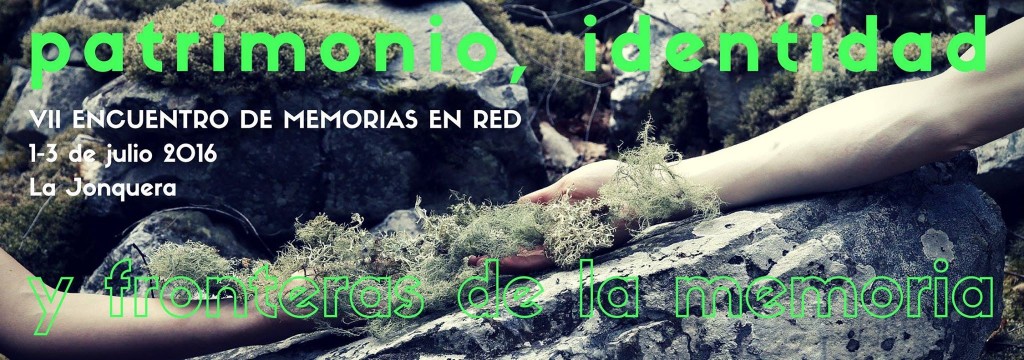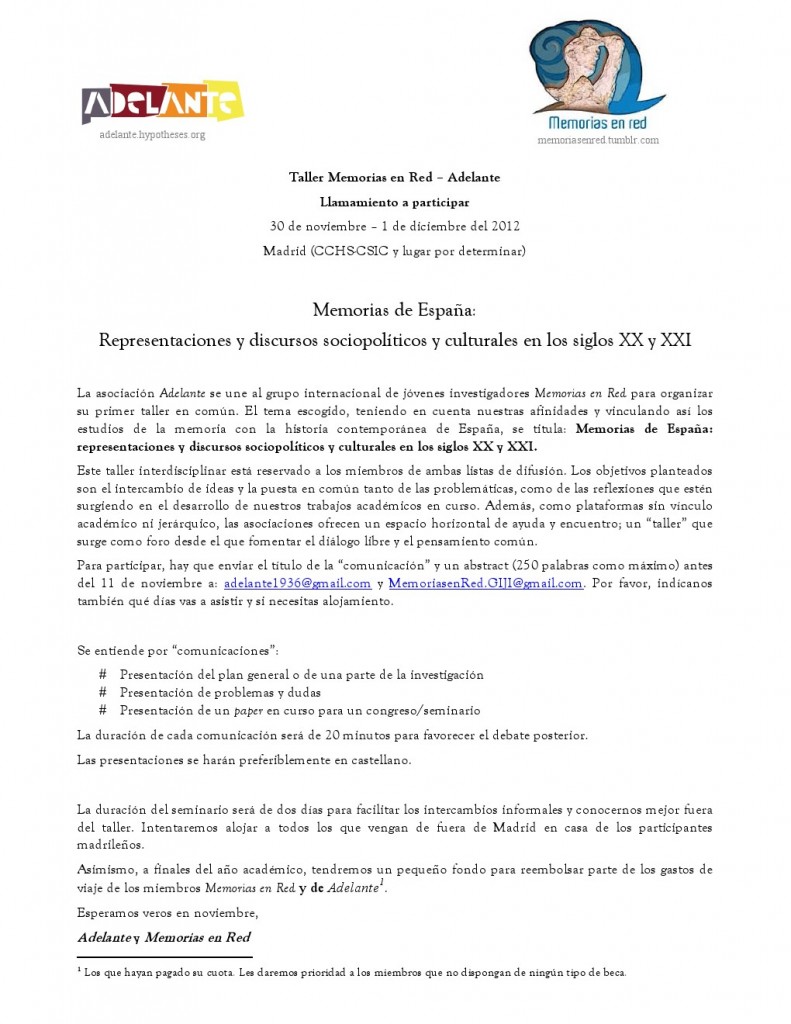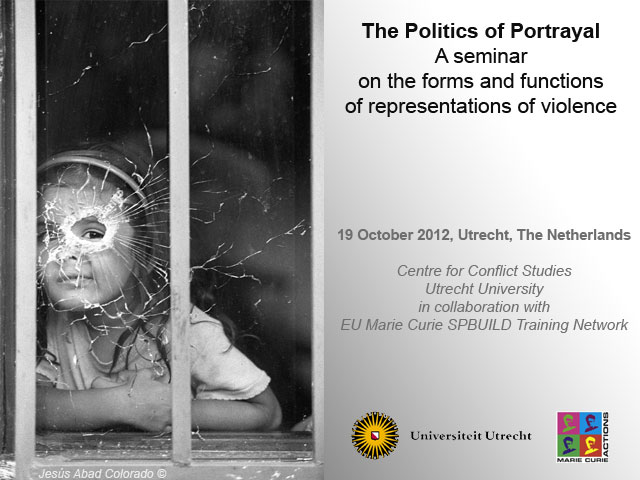Es un placer invitaros a todxs a participar en el IX Encuentro de Memorias en Red “Memoria, emociones y espacios de dignificación”, que tendrá lugar los días 22, 23 y 24 de junio de 2018 en la Casa de la Memoria La Sauceda de Jimena de la Frontera (Cádiz).
Cualquier aspecto de la vida de los seres humanos está atravesado por las emociones. Si la memoria contiene trazas de una situación vivida, las emociones nos muestran la forma y el modo en que los recuerdos han sido y son tallados. Por este motivo, las emociones se están constituyendo como un campo de investigación en auge dentro de los estudios de memoria.
Las emociones no son sólo impulsos biológicos o psicológicos, sino que producen conocimiento, significado y subjetividades. Son espacios complejos atravesados por la experiencia histórica, social, política y cultural. Las emociones son intersubjetivas y controvertidas, y se encuentran en continuo cambio y reescritura.
La memoria está íntimamente vinculada al carácter emocional de un acontecimiento y está sujeta a la sensibilidad y voluntad propias del sujeto o el grupo. La consolidación de las expresiones de memoria está catalizada por las emociones, y éstas afloran en la evocación del recuerdo, remitiendo a aspectos sensitivos que enriquecen las narrativas. En numerosas ocasiones, espacios tales como las exhumaciones, los homenajes, las entrevistas, las aulas o las expresiones artísticas generan emociones que condensan y encauzan procesos de dignificación.
Estos espacios de dignificación cobran un sentido mayor al del simple escenario porque son transformados a través de los actos que en ellos han tenido o tienen lugar, convirtiéndose en elementos depositarios del recuerdo a través del tiempo, modificando su sentido original y componiendo nuevos significados.
Para participar, tenéiss que enviar el título de la “comunicación” y un abstract (300 palabras como máximo) antes del 30 de abril de 2018 a: MemoriasenRed.GIJI@gmail.com
Memorias en Red se hará cargo de parte de los gastos de traslado de lxs socixs que lo soliciten. Hay una opción de alojamiento gratuita consistente en una habitación amplia y diáfana donde lxs socixs podrán dormir sobre esterillas. Para lxs que lo prefieran, existen otras opciones de alojamiento (a cuenta de cada cual). Si queréis que os reservemos en alguno de estos alojamientos, informadnos lo antes posible por favor a través del correo de la asociación.
Pincha aquí para leer el llamamiento completo.
¡Os animamos a mandar vuestras propuestas! Aquí podéis consultar información sobre los encuentros de los años anteriores.


